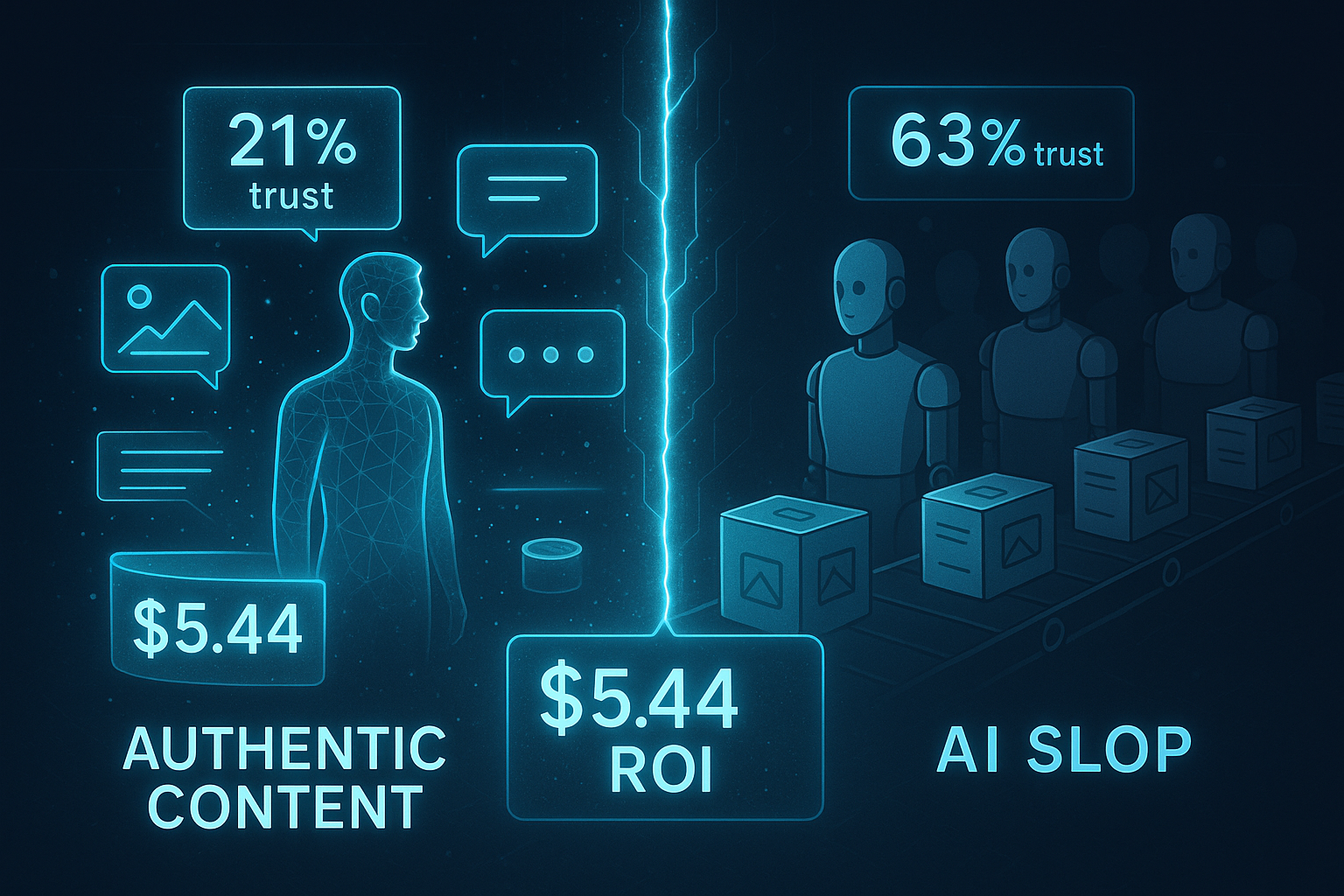
The 2025 Reality: Nonprofits Are Embracing AI (But Most Don't Have a Plan)
Here's what the data is telling us: 82% of nonprofits now use AI in some capacity, yet only 24% have a formal strategy for it. That gap between adoption and intentional use is creating two very different outcomes in our sector.
On one side, you have organizations using AI to do MORE relationship-building, not less. They're saving 15-20 hours weekly on administrative tasks and redirecting that time toward personal donor calls and community engagement. On the other side, you have nonprofits pumping out generic AI content that donors can spot from a mile away, eroding the very trust that makes fundraising possible.
The numbers that really matter:
- 71% of nonprofits use or plan to use AI for fundraising - up 28 points from 2023
- 30% report AI has boosted their fundraising revenue in the past 12 months
- Organizations using AI strategically see 20-30% increases in donations
But here's what excites me most: 67% of donors actually support nonprofit use of AI. They're not opposed to it - they just want it used in ways that respect the relationship.
All that to say, the opportunity is massive for nonprofits willing to use AI thoughtfully. Let me show you what's actually working versus what's just noise.
What Changed My Perspective on AI for Nonprofits
I'll be honest - when AI tools first started gaining traction, I was skeptical about their place in mission-driven work. My nonprofit background, from organizing feeding programs at church to doing short-term mission trips to Thailand and Korea, taught me that the human connection is everything. You can't automate the moment when a burn survivor child feels included for the first time at camp because they're around others who understand their experience.
But then I started seeing the other side of the equation. At CodeSeoul, the nonprofit I'm involved with that shares tech knowledge with international students in Seoul, I can see the desperation in people who lack the expertise, network, or soft skills to navigate the system. Sometimes there's hopelessness. And I realized: if AI could help us reach more of these people, train more volunteers, and share our message more effectively, why wouldn't we use it?
The breakthrough came when I understood the difference between AI that replaces human connection versus AI that enables more of it. A development director who saves 3 hours on content creation can spend that time making personal thank-you calls. That's the promise of AI done right.
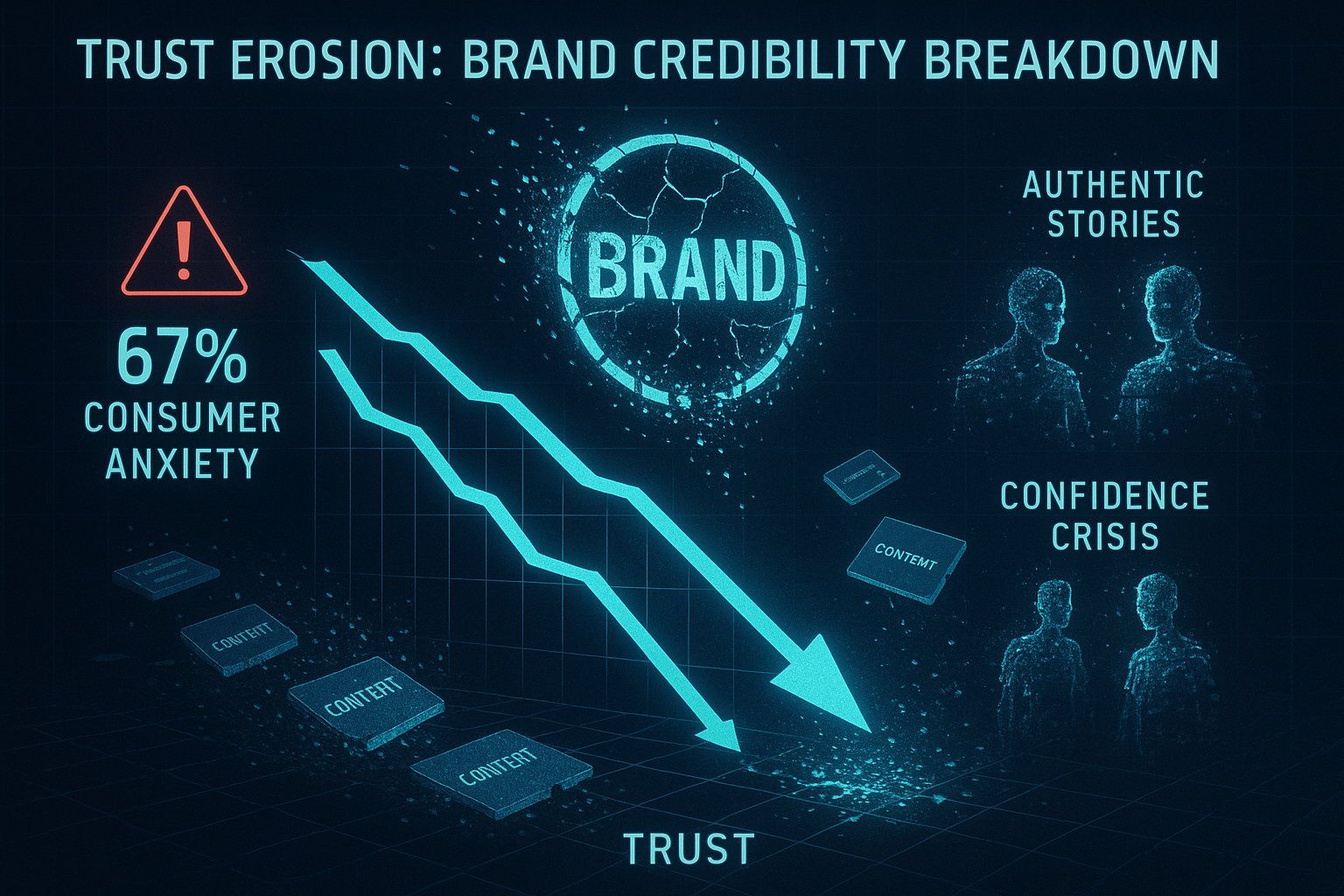
What's Actually Working for Nonprofit Fundraising in 2025
Let me walk you through the specific AI applications that are producing real results for mission-driven organizations. These aren't theoretical - they're backed by data and real-world implementation.
1. AI-Powered Donor Segmentation and Personalization
This is where the magic happens. Only 13% of nonprofits currently use predictive AI for donor prospecting, which means there's a massive first-mover advantage for organizations that adopt it now.
Here's why this matters so much: the average nonprofit donor retention rate is just under 35%. That means you're replacing more than half your donor base every year. But donors who give consistently for five years contribute 1,519% more than one-time donors.
AI segmentation helps you:
- Identify which donors are most likely to upgrade their giving
- Spot pre-lapsed donors before they disappear (the 6-9 month no-gift window is critical)
- Match donors with programs that align with their interests
- Personalize communication based on actual behavior, not just demographics
One thing I quickly realized from my marketing background is that personalization isn't just about inserting someone's name in an email. It's about understanding why they gave in the first place and speaking to that motivation.
2. Automated Thank-You Sequences That Feel Personal
Here's a stat that should keep every development director up at night: nonprofits only retain 7.2% of first-time donors. Seven percent. That means 93% of the people who gave you money once never give again.
The research shows that immediate, personal acknowledgment is one of the biggest factors in whether a first-time donor becomes a repeat donor. But when you're running a small team with limited resources, personally calling every $25 donor isn't realistic.
This is where AI-powered automation shines:
- Immediate thank-you emails that reference the specific program they supported
- Follow-up sequences that share impact stories related to their gift
- Automated scheduling for personal phone calls to major donors
- Text message updates at key moments (when their funded project launches, when a beneficiary achieves a milestone)
The key is that the automation draws from your authentic voice and real impact stories. Garbage in, garbage out - if you feed AI generic prompts, you'll get generic output that donors will see through immediately.
3. Impact Report Generation from Program Data
Every nonprofit produces impact data, but most treat it as an annual obligation rather than a content goldmine. AI can transform your program metrics into compelling donor communications.
Think about it: you probably have data on how many meals you served, how many clients you helped, how many volunteers participated. But that data sits in spreadsheets until someone has time to write the annual report.
AI can help you:
- Turn monthly program data into personalized donor updates
- Generate social media content from outcome metrics
- Create grant narrative evidence from evaluation data
- Produce board presentations that actually tell a story
When I was at the Alisa Ann Ruch Burn Foundation helping organize camps for burn survivors, the most powerful moments were watching these kids feel included for the first time. That emotional impact gets lost when you just report "we served 50 campers." AI can help you tell those stories at scale without losing the heart.

4. Grant Writing Assistance and Research
This is one of the highest-ROI applications of AI for nonprofits, yet 40% of organizations report that no one in their organization is educated in AI.
AI can dramatically accelerate the grant writing process:
- Research foundation priorities and giving patterns
- Draft initial narratives based on your program data and outcomes
- Ensure consistency across multiple applications
- Identify new funding opportunities that match your mission
But here's the critical thing: AI should draft, not finalize. The foundations reading your proposals can tell when something is generic. Your unique voice, your specific stories, your organization's personality - those need to come through in the final version.
I learned this lesson the hard way in my marketing work. The proposals and campaigns that converted best weren't the most polished - they were the ones where you could feel the founder's passion coming through every page.
5. AI-Enhanced Donation Forms
Here's a concrete number that shows the potential: AI-enhanced donation forms average $161 per gift versus the $115 industry average. That's a 40% increase in average gift size.
How does this work? AI can:
- Suggest optimal ask amounts based on donor history
- Personalize the giving experience based on how someone arrived at your page
- A/B test messaging in real-time
- Reduce friction in the donation process
For resource-constrained teams, this is low-hanging fruit. You implement it once, and it keeps working for every donation that comes through.
What's Just Hype: AI Applications That Can Hurt Your Fundraising
Now let me share some of the AI applications that sound promising but can actually damage your donor relationships. This matters because 92% of nonprofits feel unprepared for AI, which means many are vulnerable to hype.
Fully Automated Fundraising Appeals
This is the biggest trap I see nonprofits falling into. The idea sounds appealing: let AI write your year-end appeal, your GivingTuesday campaign, your monthly donor asks. Save time, scale content, raise more money.
The reality? Donors can smell inauthenticity from a mile away. When your appeal reads like it could have come from any nonprofit in your space, you've lost the very thing that makes people give: emotional connection to YOUR mission.
I've seen organizations try this approach and watch their response rates drop. The content is technically correct, but it lacks the founder's passion, the specific stories of lives changed, the personal touches that make donors feel like partners in the mission.
The antidote: use AI to help with research, outlining, and first drafts. But always infuse the final version with your authentic voice and specific stories. For guidance on building systems that preserve authenticity at scale, check out my AMPLIFY framework for authentic nonprofit content.
AI-Generated Impact Stories Without Real Data
Some organizations are tempted to have AI "create" beneficiary stories or fabricate outcomes. This is not just ethically problematic - it's a trust disaster waiting to happen.
Donors give because they believe in your mission and trust that you're telling the truth about your impact. The moment that trust breaks, you lose not just that donor, but everyone they might have referred.
The right approach: use AI to help you TELL your real stories more effectively, not to make up stories you don't have. If you don't have compelling outcomes to share, that's a program problem, not a content problem.
Chatbots Replacing Human Donor Relationships
Here's what I learned from my time in the nonprofit sector: donors give to missions they believe in, led by people they trust. That trust is built through human connection. A chatbot can answer FAQs about your programs, but it can't replace the development director who remembers that a major donor's daughter just graduated college.
Use chatbots for tier-one support and information gathering. Reserve human interaction for relationship-building moments.
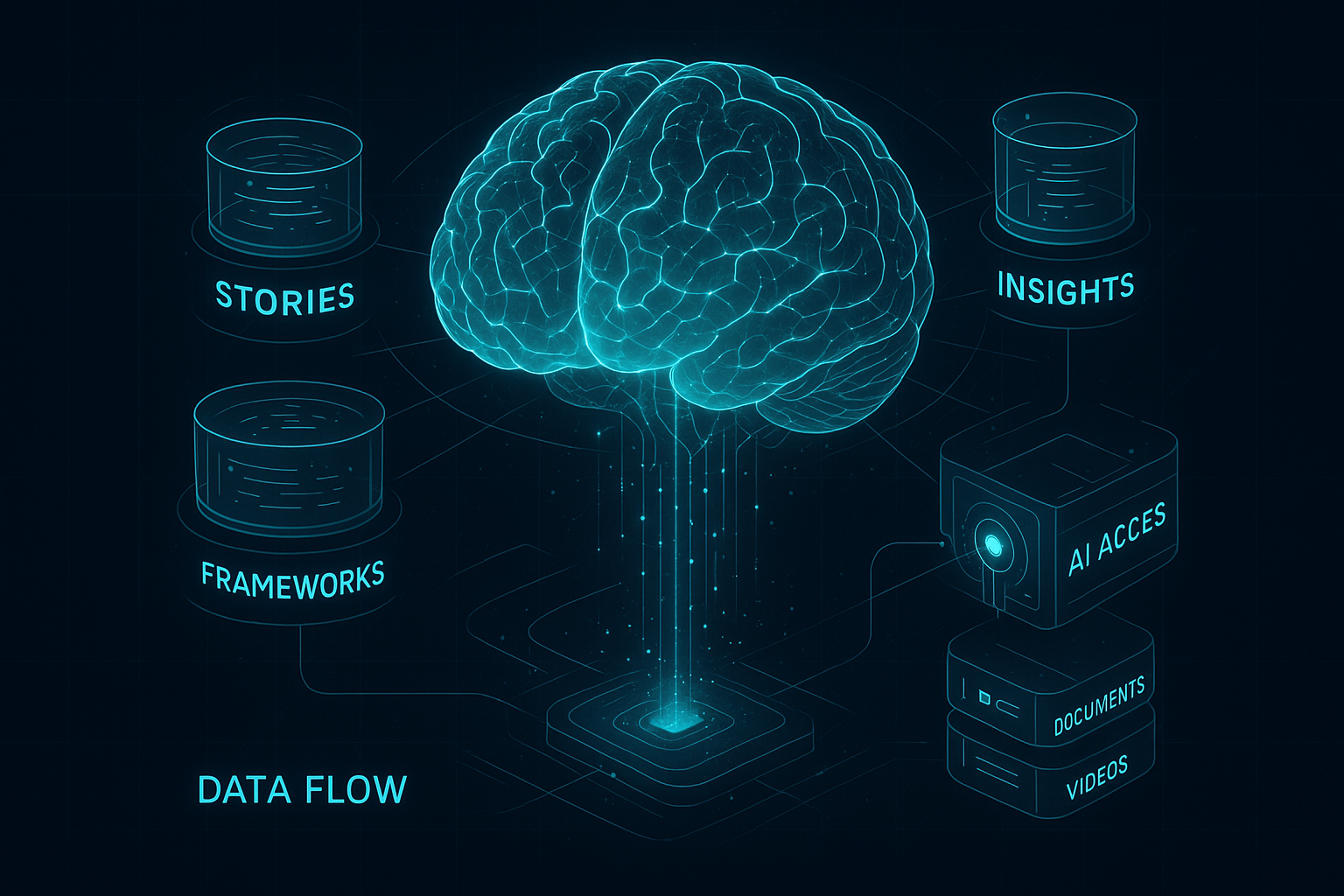
The ROI Reality: What Nonprofit AI Investment Actually Returns
Let's talk money, because that's ultimately what allows you to serve your mission. The data on AI ROI for nonprofits is compelling:
Email Marketing Returns
- Email marketing yields an average ROI of $42 for every $1 spent for nonprofits
- Automated emails drive 37% of all email-generated revenue despite being only 2% of email volume
- Personalized email content raises click-through rates by 39%
Time Savings
- Organizations report saving 15-20 hours weekly on administrative tasks through AI
- Content creation time drops from 4+ hours to under 1 hour per piece with proper AI workflows
- Grant research and writing can be accelerated by 50-70%
Fundraising Performance
- 20-30% increases in donations through predictive analytics and personalized outreach
- AI-enhanced donation forms lift average gifts by 40%
- Organizations with formal AI strategies outperform peers in donor retention
But here's what I want you to remember: these numbers only materialize when AI is used to enhance human connection, not replace it. The ROI comes from redirecting saved time toward relationship building.
The Barriers Holding Nonprofits Back (And How to Overcome Them)
If AI is so effective, why aren't more nonprofits using it strategically? The data reveals three major barriers:
Barrier 1: Lack of Knowledge
40% of nonprofits report that no one in their organization is educated in AI. This isn't surprising - most development professionals didn't sign up to become technologists.Solution: Start small. Pick one use case (like automated thank-you sequences) and master it before expanding. You don't need to understand the technology deeply - you need to understand how to apply it to your mission.Barrier 2: Financial Constraints
Nearly 30% cite financial limitations as a primary barrier, particularly organizations with budgets under $500,000.Solution: Many AI tools have nonprofit pricing or free tiers. ChatGPT, Claude, and email automation platforms all offer accessible starting points. The question isn't "can we afford AI?" but "can we afford not to use it when competitors are?"Barrier 3: Data Privacy Concerns
70% worry about data privacy and security; 63% about accuracy; 57% about bias.Solution: These are legitimate concerns that require policies, not avoidance. 76% of nonprofits don't have an AI policy - creating one puts you ahead of most organizations. Focus on data handling guidelines, human review requirements, and transparency with donors.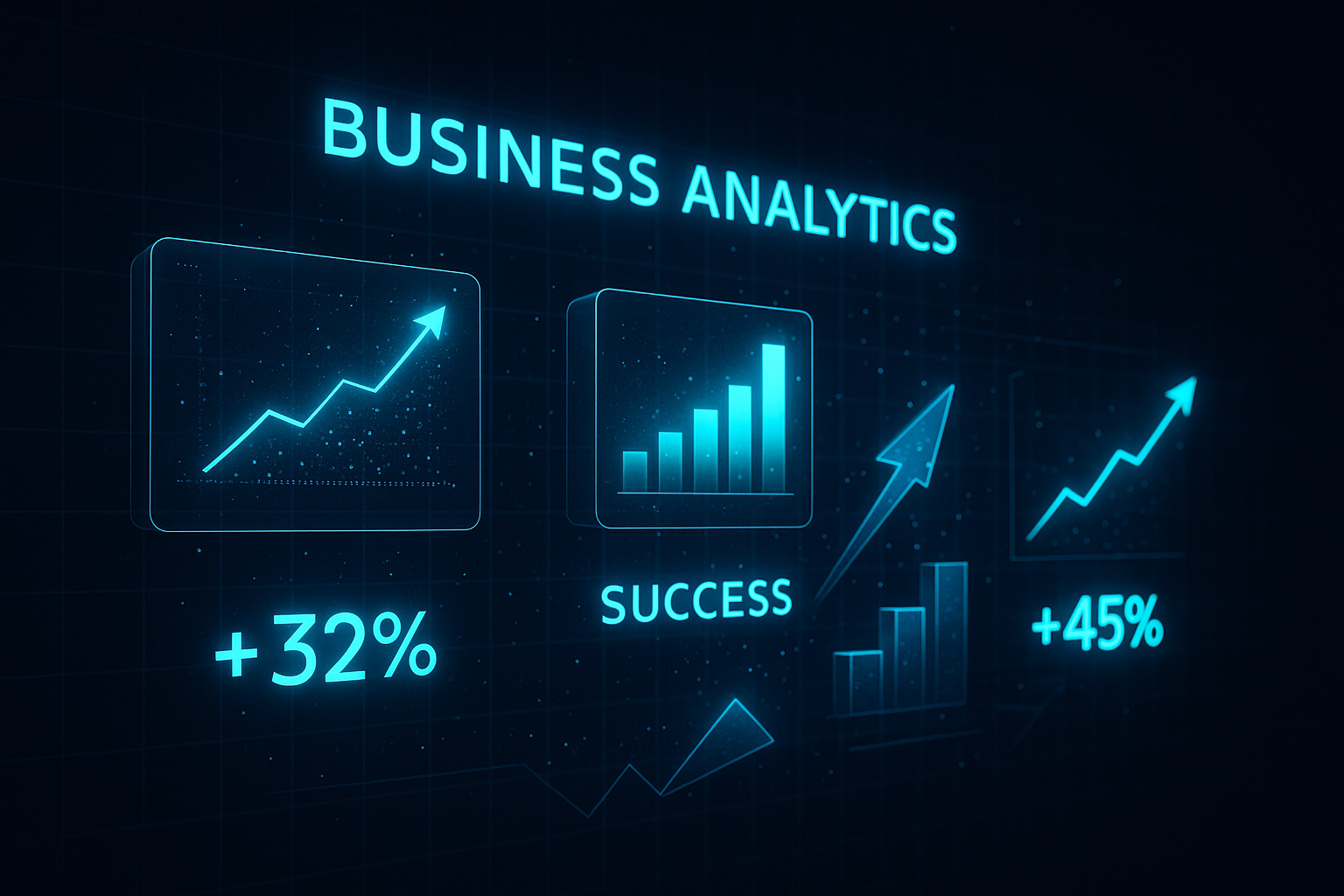
Building Your Nonprofit AI Strategy: A Practical Framework
Based on what's actually working, here's how I recommend nonprofits approach AI adoption:
Step 1: Build Your Impact Story Repository
Before you touch any AI tool, document your organization's unique assets:
- Beneficiary transformation stories (with appropriate permissions)
- Donor testimonials about why they give
- Founder origin story - why this cause matters personally
- Staff and volunteer experiences that capture your mission
- Specific outcomes with context, not just numbers
This becomes the foundation that makes AI output authentic rather than generic. For a detailed guide on building this "external brain," see my comprehensive nonprofit content strategy.
Step 2: Start with High-ROI, Low-Risk Applications
Begin where the payoff is immediate and the risk is minimal:
- Automated thank-you sequences for new donors
- Email subject line optimization
- Donation form personalization
- Social media content repurposing
These applications let you learn the technology while generating quick wins.
Step 3: Maintain Human Oversight
Every successful nonprofit AI implementation I've seen maintains human review at critical points:
- All external communications get human approval before sending
- Major donor touchpoints remain personal
- Impact claims are verified against real data
- Brand voice is checked against guidelines
The goal is augmentation, not replacement.
Step 4: Measure What Matters
Don't just track opens and clicks. Track:
- Donor retention rate (aim for improvement over the 35% average)
- Average gift size trends
- Time-to-second-gift for new donors
- Staff hours redirected to relationship building
- Qualitative feedback from donors
The Future: AI as the Great Equalizer for Mission-Driven Organizations
Here's what excites me about where this is heading: AI can be the great equalizer that lets small development teams compete with organizations ten times their size.
A three-person nonprofit can now:
- Personalize donor communications at scale
- Research grant opportunities as thoroughly as large foundations
- Create professional content without a marketing department
- Maintain consistent donor engagement without burning out staff
The playing field is more level than it's ever been. The question is whether your organization will embrace these tools strategically or watch others pull ahead.
Only 6% of nonprofits are actively investing in AI tools, even as 82% are using them informally. That gap represents an opportunity for organizations willing to be intentional.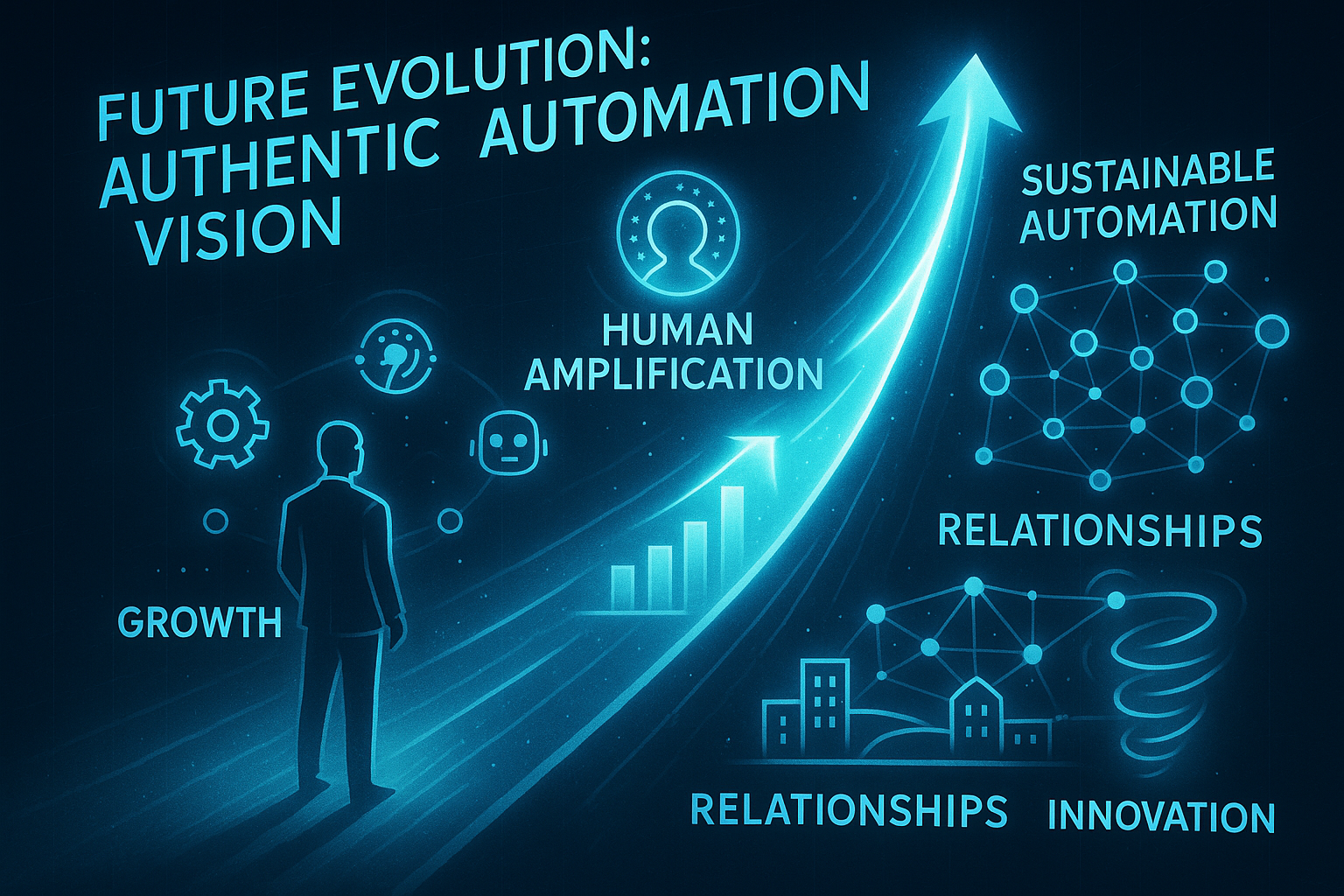
Your Next Steps
Here's what I want you to do today: pick ONE AI application from the "what's working" list and commit to implementing it this month. Don't try to transform everything at once. Start small, learn, and build from there.
If you're not sure where to start, automated thank-you sequences for new donors is my recommendation. It addresses the 7.2% first-time donor retention crisis directly, the technology is accessible, and the risk is low.
Remember what drives all of this: the need is always greater than available resources. That was true at Harriet Buhai when we couldn't take on every client who needed help. It's true at CodeSeoul when we can't reach every international student who needs guidance. It's true at your organization too.
AI won't solve the gap between need and resources. But used right, it can help you stretch further, serve more people, and build the donor relationships that fund your mission for years to come.
That's something to consider.
If you need help implementing AI systems that preserve your authentic voice while scaling your fundraising, I'd love to chat. We help mission-driven organizations build content systems that do MORE relationship-building, not less. Schedule a call and let's talk about what's possible for your organization.
---
The need is always greater than the resources. Let's change that.
When I volunteered at Harriet Buhai Family Law Center during law school, I'd feel very, very sad when we couldn't take on a client because we didn't have the budget. Families who desperately needed help with restraining orders or custody issues—turned away because the resources just weren't there.
That experience taught me something important: if nonprofits had more donors, more consistent funding, they could help more people. It's that simple.
That's why I built the AMPLIFY Framework for mission-driven organizations—a system for keeping donors engaged so you can focus on what matters: your mission.
See How It Works →